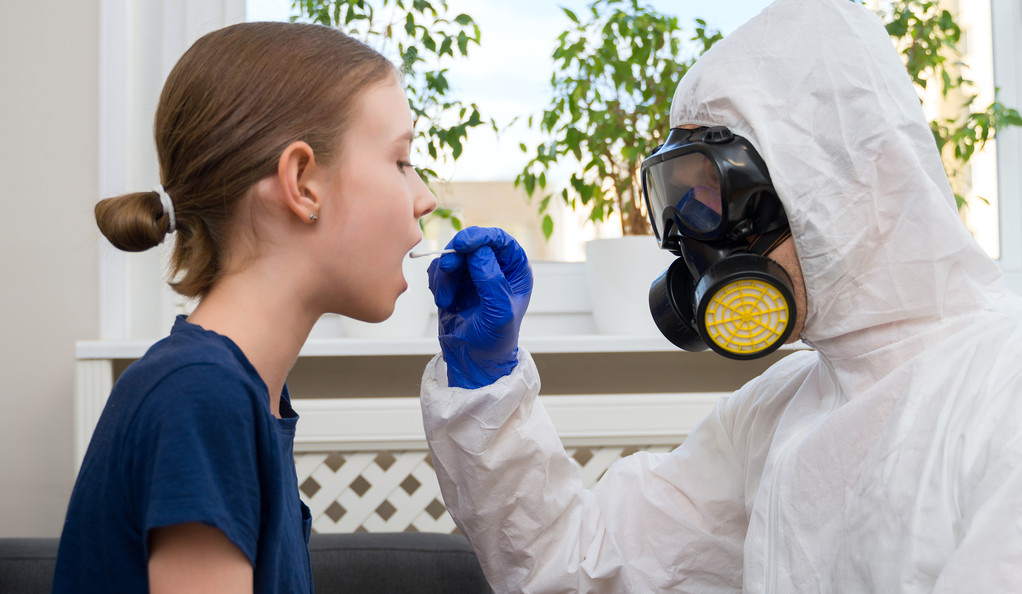Shorter quarantines with careful testing may be more effective than two-week isolation, Yale study finds

Yale News
Appropriately timed testing can make a seven-day quarantine more effective than a 14-day quarantine in preventing the spread of COVID-19, according to a Yale School of Public Health study.
Researchers at YSPH identified that testing negative for COVID-19 as late as possible during quarantine reduces one’s chances of transmitting coronavirus upon exit from isolation. The study’s authors also found that a one-week quarantine with a negative test result on day six results in an equivalent or lower risk of post-quarantine coronavirus transmission than a two-week period of quarantine without testing. The study was published in the journal Nature Communications on Jan. 7. The findings helped to persuade the Centers for Disease Control and Prevention to provide 10- or seven-day quarantine alternatives to the prior two-week guideline in early December, although the paper had not yet been peer-reviewed at that point.
“That’s a major change for national policy, which we are proud to have helped to make happen,” professor of biostatistics and co-author of the study Jeffrey Townsend wrote in an email to the News. “A one-week quarantine with a test is typically less financially costly (counting lost work), less costly to mental health, and more likely to be adhered to, aiding both personal and public health.”
In the study, the scientists examined the levels of transmission that occured over the course of the illness and how likely an RT-PCR test was to correctly identify someone who was infected but asymptomatic. This information helped researchers to develop a mathematical model quantifying the probability of post-quarantine transmission.
Chad Wells, a former postdoctoral associate at Yale, and his co-author explained that the importance of timing of testing was another crucial finding of the study.
“We showed that testing too early can increase the probability of obtaining a false-negative due to the individual more likely being in the early stages of infection,” Wells wrote in an email to the News.
Researchers also implemented a real-world test of their model by collecting data from a population of oil company workers, who were required by their employer to undergo strategic testing during a five- to seven-day quarantine before entering an offshore rig.
Townsend explained that studying the sample of workers at the oil rig was beneficial for financial reasons. Because oil rigs can extract $1 million worth of oil barrels per day, if an outbreak were to emerge, it would result in staff shortages, heightened health risks and significant monetary loss.
Additionally, oil rig employees were an excellent cohort to examine in this study to understand the efficacy of shorter quarantines, Townsend said. This is because an isolated population striving to protect itself from transmission, like an offshore rig, closely mimics the struggle of nations with few positive cases attempting to quarantine travelers and prevent high caseloads.
“Because of the willingness of the oil enterprise to impose a rigorous and thorough quarantine and testing strategy and because of the true isolation of the offshore population, the data on test results and potentially outbreaks is tremendously informative,” Townsend wrote.
In the study, there were numerous oil rig workers who tested negative upon entry to quarantine but then tested positive after four days in isolation. The oil company sent only workers who had tested negative twice during quarantine to the offshore platform.
The researchers estimated that this judicious testing practice prevented nine transmission events that could have resulted in larger outbreaks.
“[They] were very relieved to have no outbreaks on the rigs and platforms that they manage,” Townsend wrote.
Wells described that the findings of this study present important areas for future research with regard to the economy.
He mentioned that a cost-benefit analysis of implementing shorter quarantines with testing upon entry and exit compared to 14-day quarantines could be a promising area for analysis.
Burton Singer, a collaborator on the study and a former associate dean of YSPH, agreed with Wells.
“Shorter quarantines have the benefit of possibly reducing the mental anguish of 14-day quarantines, as well as lessening the burden long quarantines have on the economy,” Wells wrote in an email to the News.
Townsend also mentioned that his team is currently investigating how the use of antigen tests — a more rapid and cost effective, though less sensitive, alternative to RT-PCR tests — would compare in a similar study.
As of Feb. 4, the CDC reports 26,277,125 total cases of COVID-19 in the United States.
Sydney Gray | sydney.gray@yale.edu







